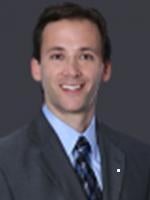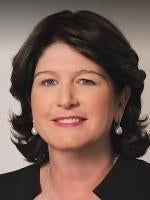The University of Miami held its fourth annual Real Estate Impact Conference on February 18th at the JW Marriott Marquis Miami in Downtown Miami. In front of a standing room only crowd of approximately 600 people, both local and national real estate heavyweights spoke on topics such as Retail Evolution and Revolutions, New Concepts in Lifestyle Hotels and Creating Value in Urban Real Estate by the Use of Public Space. The keynote speaker was Richard LeFrak, Chairman and CEO of the LeFrak Organization, a privately held, family run company based in New York.
In the Retail Evolution and Revolutions panel, Michael Comras, President and CEO of the Comras Company, served as the moderator. The panelists were Robert Cohen, President, Southern California, for RKF; David Forbes, a partner in The Forbes Company; Matthew Lazenby, President and CEO of Whitman Family Development; and Erich Melsheimer, Senior Director of Real Estate of Gap, Inc. The panelists focused on Miami Worldcenter, Brickell City Center and Miami Design District projects. Comras asked whether there was enough room in the retail for those three major projects. According to David Forbes,
“Miami is now the third biggest market after New York and L.A. for luxury retail.”
The panelists seemed to unanimously agree that all three projects could succeed and noted that each one is unique. Miami Worldcenter will be anchored by Bloomingdale’s and Macy’s, Brickell City Center will be anchored by Saks Fifth Avenue, and Miami Design District is focused on high end luxury retail, with stores such as Louis Vuitton, Hermes, Cartier and Rolex. Matthew Lazenby compared Brickell City Center to Rockefeller Center in Manhattan as far as scale. The panelists also discussed the evolution of Lincoln Road on Miami Beach into a high street retail destination with new stores being built for The Gap, Apple, Forever 21 and H&M, among others. Cohen highlighted that retail rents have doubled on Lincoln Road over the past 6 years. The combination of these three major projects, together with Lincoln Road, will certainly transform the retail market in Miami and bring it to new heights as a significant player in the retail market worldwide.
In the New Concepts in Lifestyle Hotels panel, Steve Witkoff, CEO of The Witkoff Group, a New York based real estate developer, interviewed Ian Schrager, Founder and Chairman of Ian Schrager Company and the developer of the iconic Delano Hotel on Miami Beach. Schrager noted that Miami has become a world class city on par with other world class cities.
“I don’t care that Miami is on fire. You can’t base a project on the cycle. A good project is a good project,” Schrager said.
He has partnered with Marriott Hotels in creating the Edition Hotel concept, with the first two locations opening in London and Miami Beach and the third one being developed in New York City. The Edition Miami Beach opened in November and according to Schrager and Witkoff is operating at two times its budgeted profitability. It recently sold for $230 million to the Abu Dhabi Investment Authority. Schrager said that 40 to 45 percent of its revenues are generated by food and beverage sales but that the highest profit margins are with the rooms. Schrager has developed a new value oriented boutique brand called Public, which focuses on food and beverage and has a highly stylized, yacht cabin feel. “It will be sophisticated, sexy and glamorous with essential luxury services,” according to Schrager. As far of what is next, Schrager said “I like the Biscayne Boulevard corridor and I like downtown Miami.” Schrager is keeping his eye on Wynwood and likened it to Brooklyn’s Williamsburg area. He thinks it is cool, but is concerned that it is not safe at night there yet.
In the Creating Value in Urban Real Estate by the Use of Public Space panel, Charles Bohl, Director and Associate Professor in the Master in Real Estate Development and Urbanism Program at the University of Miami served as the moderator. The panelists were Philip Aarons, Principal and Founding Partner of Millennium Partners; Meg Daly, Founder of Friends of the Underline; Steve Owens, President of Swire Properties; and Vincent Signorello, President and CEO of Florida East Coast Industries (FECI). Mr. Aarons discussed his involvement with the High Line Project in New York City, which has been extraordinarily successful in transforming an unused elevated freight rail line into a free public park on Manhattan’s West Side. Ms. Daly is working on a project in Miami called the Underline, which will develop 10 miles of bicycle and walking paths under the Metrorail line that runs from Dadeland Station to Brickell Station.
“We want to find ways to take these leftover lands and give them back to the public in a meaningful way,” according to Ms. Daly.
Swire Properties, the developer of Brickell City Center , is working on the Brickell City Center Garden Walk to create a public green space around its project. FECI’s Ludlam Trail is a 6 mile stretch of an unused rail line from Dadeland to the Miami International Airport. According to Mr. Signorello, FECI plans to develop several mixed-use projects at key nodes along Ludlam Trail. The panelists discussed the exciting potential to connect the Underline, Ludlam Trail and the Riverwalk around Downtown Miami and Brickell to create a continuous public space.
In the final session, Richard LeFrak was interviewed by Donna Shalala, President of the University of Miami. According to Mr. LeFrak, Miami is the second most desirable real estate market in the U.S. “I am sold on the future of the City, ” LeFrak said. “Miami is going through a transformational time.” LeFrak Organization has invested heavily in Miami, with its $350 million renovation of the 1 Hotel in Miami Beach (formerly the Gansevoort Hotel) and purchase of 183 acres of land in North Miami known as Biscayne Landing, which LeFrak described as a once in a generation project. “You have great culture, great food, a great beach, a financial sector, and the second busiest airport in the country,” LeFrak noted. “You are a global city and your market here is the world.” Education is a key factor according to LeFrak, who said that “you can’t have a great city without great universities because you need human capital to attract businesses.” He also discussed the importance of encouraging tech and trying to become the next Silicone Valley. Mr. LeFrak did caution that real estate is a cyclical business and that there will be some volatility in the market even if people are buying condos and putting down 50% deposits. When asked what inning we are in, LeFrak said that it depends on interest rates, but that we are probably in the 4th or 5th inning. The key, according to LeFrak, is to buy at a good price at a good time. He appears to have done exactly that.




 />i
/>i

